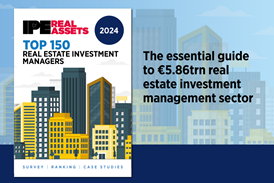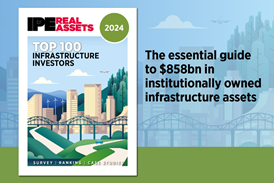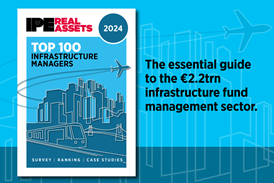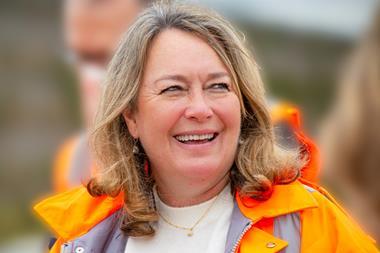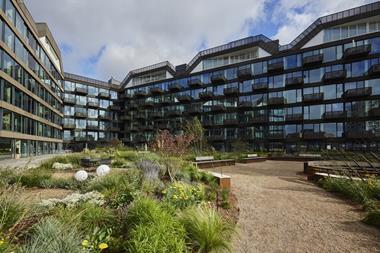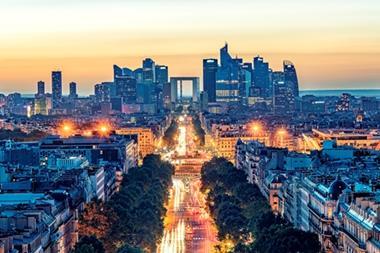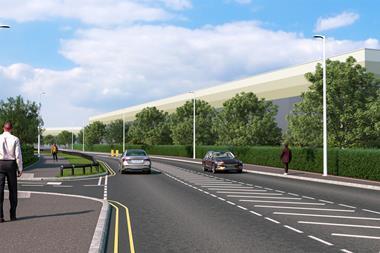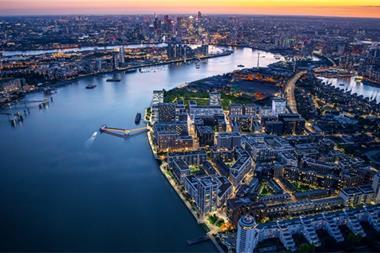Node Living, a new co-living concept founded by former Blackstone professional Anil Khera in 2016, is seeking capital partners for expansion across multiple geographies.
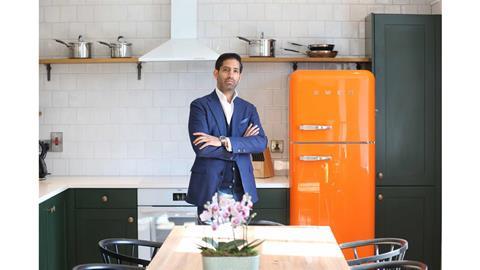
In an interview with PropertyEU, Khera explains the concept behind Node, which went public last year, and looks ahead to what is in store for the company in 2019.
Can you tell us what the Node Living concept is and where the name came from?
Node is a global ‘curated’ co-living company that creates urban rental apartment communities in creative capital cities around the world. Our mission is to create a global network of design-led, community-focused, apartment residences where our residents form part of a community – both locally and globally. Node residences are currently located in cities throughout North America and Europe with further expansion planned globally. We are fully integrated as an investor, developer and operator.
What do you mean by curated?
We call ourselves ‘curated living’ as this is not the simple ‘dorms for adults’ often associated with other co-living concepts. We offer compact apartments that allow people to live in a private 1-4 bedroom apartment with their own kitchen/living area, yet have access to other communal spaces that foster community living. Our community curators facilitate this culture and act as our residents’ local gurus. The name node means ‘a point of a connection’, which was our way to bring people and places together in a local and global rental community.
Who else is involved in the company and what gave you the original idea?
We have a global team that is located across several offices in both Europe and North America. Node is a response to the trend in global urbanisation and specific demand requirements from a new generation of globally and upwardly mobile renters. They are looking for more than just a smart apartment – they want a ‘plug and play’ lifestyle solution – a unique interior-designed ‘instagrammable’ apartment, a compatible roommate match if needed, a vibrant and diverse community, and live in a central and hip urban neighbourhood – all at a cost-effective price and at the push of a smartphone button. Also, they want to have a place to stay and an instant community in other cities – should they decide to move there for a job opportunity or work project.
Can you tell us a little about the evolution and/or growth of the company so far. Has it all gone the way you expected?
Node was founded in 2016, and we have since grown to locations in seven cities in four countries on two continents, so it has been a busy couple of years. When we went public with our brand last year, we had overwhelming interest from people in the top 25 global cities – on every continent – both from potential renters, investors and developers. We see huge potential to scale up to be the world’s first truly global co-living investor/operator. I can’t say we anticipated the overwhelmingly positive response when we launched, especially from our residents who said this was their ‘perfect home and community’.
What have been two or three recent developments of the business that have excited you most?
Seeing equally positive reactions to our concept in very different cities has been exciting as it has given us the conviction that our concept is viable globally. But most exciting is to have so many high-quality people who believe in our vision, come to us unsollicited to join the Node team. I think that is the best sense of how you are really doing as a business, when you attract and have great people on your team.
What do you make of the current competitive landscape: which market players and entrants do you take notice of and which markets for your product are the most competitive?
I really don’t see the market as competition but rather that there are a handful of peers in the industry who are disrupting the norms and defining a new way of living for this new emerging consumer base. And they are located across the globe. Each player is carving out a different segment from targeting graduate trainees to a more upmarket creative professional. We are most competitive in the larger global cities where housing costs are high and where we see a network benefit of having busy global citizens bounce from one city to the next on their life and career journey. So, we see Node as the Soho House of residential living, with a unique platform and offering that is hard to replicate.
Which kind of location works best?
Within the top global cities, we look for up-and-coming, ‘high walkscore’ neighbourhoods, centrally located with good transport links. We find younger urban renters are much more likely than buyers to take the plunge into an ‘edgy’ area, and they can help be part of improving a community as well. This allows us to invest in locations at a lower capital basis and offer an affordable rent, while also having the ability to outperform the broader market as a neighbourhood comes into fashion in the medium to long term.
How do you describe Node’s financial model? Is it going to evolve?
We have started as a privately funded owner/developer/operator. We see the attractiveness of creating opportunistic returns on the development side of our business. But on the investment side, our completed rental buildings can create value added returns with only core risk – as our unique product offer and city/neighbourhood selection should outperform ‘commodity’ multifamily assets in the same city. And by having the flexibility to invest in multiple cities and countries, we can invest in markets at the right time, when other geographically focused funds are forced to ‘use it or lose it’ and invest only in their restricted markets even when they know it is not the ideal time. We also think there is a model for holding assets permanently and creating higher investment multiples longer term - rather than just ‘buy it, fix it, sell it’, where IRRs seem enticingly high, but investment multiples are actually lower as transaction costs from this constant churn really eat into long-term capital returns.
Has working for The Blackstone Group been helpful to you in this venture? What were your experiences at that company?
11 years at Blackstone was a phenomenal training ground where I was privileged to work with the best minds in the industry – and get exposed to real estate investing across the globe. From helping start our India office and closing Blackstone’s first Asian deal, to creating and running the European Capital Markets team, to being part of developing and selling the Logicor and Nido Student Housing platforms, I learned how to think macro globally, be innovative, and create platforms that can be scaled in a bold way. Most importantly, I learned how important culture and values are in business and how you can be a nice person and still be number one.
How should people think of Node in terms of the investment management world - are you a competitor/potential partner, facilitator?
We see ourselves as a partner. We can partner with local developers to add value to a potential multifamily/PRS project just about anywhere. We are soon starting a process to look for investment partners to assist us on our next wave of expansion. But we want to be different this time, a product-focused, global, long-term oriented firm that produces exceptional returns over a long period of time.
What more can you say about the focus for 2019 and finding capital partners?
We are starting to have very preliminary capital conversations and there is strong interest. That will be my focus for next year. We are rolling out our format so we can scale to manage thousands of units in multiple geographies - so that would imply AUM in the €2-5 bn range one day perhaps, but we want to get the model right before expanding aggressively globally. In the short term we would be looking for equity in the hundreds of millions but in the medium to long term this could be in the billions once assets are running and stabilised.
- COMPANY FACTFILE
- Node Living established in 2016
- Brand was launched in 2017
- Properties in London, Brooklyn, Dublin, Manchester and Los Angeles (newest property, opened in November)
Personal profile
Anil Khera worked at The Blackstone Group for 11 years before starting Node Living in 2016. While at Blackstone, he helped start an office in India, closed Blackstone’s first Asian deal, created and ran the European Capital Markets team which finances investments for the firm’s €40 bn-plus investing platform, and played a part in developing and selling the Logicor and Nido Student Housing platforms. Prior to Blackstone, he was an associate at DLJ Real Estate Capital Partners.
